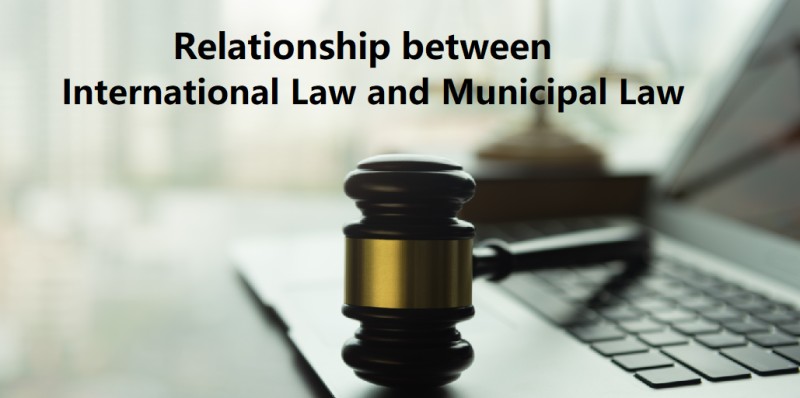Municipal Law in the Philippines refers to the legal framework that governs local government units, covering their structure, powers, and functions.

Introduction to Municipal Law in the Philippines
Municipal Law in the Philippines serves as the cornerstone for local governance, acting as a guide for elected officials and administrators in the exercise of their duties. This area of law provides the framework for everything from local taxation and service delivery to the broader issues of local autonomy and governance.
Historical Background
The concept of Municipal Law in the Philippines traces its origins to the colonial period. During the Spanish colonial rule, local governments had very little power, as central authority played a dominant role. However, this landscape changed dramatically after the Philippine Revolution and the eventual proclamation of Philippine Independence in 1898.
The American colonial government then introduced a more democratic form of local governance, which paved the way for the creation of the Local Government Code of 1991. This landmark legislation gave significant autonomy and responsibilities to local government units (LGUs), drastically changing the landscape of municipal law in the Philippines.
Legal Framework
The legal framework governing Municipal Law in the Philippines is both intricate and comprehensive. It sets the foundation upon which local government units (LGUs) operate, manage their resources, and interact with their constituents. This framework is primarily constituted by the following:
- The Local Government Code of 1991
- The Constitution of the Philippines
- Other Pertinent Laws and Regulations
The Local Government Code of 1991
The Local Government Code of 1991 serves as the backbone of municipal governance in the country. Enacted to synchronize and align the functions of LGUs, it provides clear guidelines on various aspects, such as:
- Distribution of local and national government powers
- Local taxation and fiscal autonomy
- Local legislative procedures
- Community development projects
- Public services like healthcare, education, and sanitation
The Local Government Code grants significant autonomy to local governments, allowing them to craft their local ordinances and policies, within the limits set by national law.
Constitution of the Philippines
The Constitution of the Philippines sets the overall direction for governance in the country, including local governance. It explicitly states the policy of local autonomy and outlines the general terms of reference for local government units. The constitution ensures:
- Protection of human rights
- Separation of powers between different branches and levels of government
- General welfare clauses that serve as a guide for local governance
- Directives for the internal revenue allotment for local government units
The Constitution functions as the supreme law of the land, making sure that all local laws and policies align with the national government’s overarching principles.
Other Pertinent Laws and Regulations
Besides the Local Government Code and the Constitution, several other laws and regulations influence Municipal Law in the Philippines. These include:
- Republic Acts that pertain to specific local government concerns
- Executive Orders and Memoranda issued by the President
- Department of Interior and Local Government (DILG) circulars and memoranda
- Case law or legal decisions that set precedents for interpreting municipal law
Roles and Responsibilities of Municipal Governments
Municipal governments in the Philippines shoulder a myriad of roles and responsibilities, which are vital for local development and public welfare. These duties are generally outlined in the Local Government Code but can vary from one municipality to another based on local needs and priorities. Here is a detailed look at these roles and responsibilities:
- Public Services
- Local Taxation
- Community Development
Public Services
One of the main roles of municipal governments is the provision of basic public services to their constituents. These services often include:
- Healthcare: Operating public clinics, organizing health drives, and promoting general well-being.
- Education: Management and oversight of public schools, scholarships, and educational programs.
- Security: Enforcing local ordinances, maintaining peace and order through local police.
- Waste Management: Collection and disposal of waste, as well as recycling initiatives.
- Transportation: Regulating local transport options and ensuring road safety.
Public services are essential for the daily lives of citizens and serve as a barometer of effective local governance.
Local Taxation
Another significant responsibility for municipal governments is local taxation. Municipal governments have the authority to:
- Property Taxes: Impose and collect taxes on real estate properties within their jurisdiction.
- Business Taxes: Levy taxes on businesses operating within the municipal territory.
- Market Fees: Charge fees for the use of public markets and other municipally-owned or controlled properties.
- Regulatory Fees: Charge fees for specific services like garbage collection or use of recreational facilities.
The revenues collected from these taxes and fees play a crucial role in financing the array of services provided by the municipal government.
Community Development
Community development is another core area where municipal governments exert significant influence. Under this banner, they:
- Urban Planning: Design and implement land use plans, including zoning and building regulations.
- Infrastructure: Build and maintain local infrastructure such as roads, public buildings, and recreational facilities.
- Public Welfare: Implement programs for the welfare of vulnerable sectors, including children, seniors, and the differently-abled.
- Environmental Protection: Manage natural resources and enforce laws that protect the environment.
Through these initiatives, municipal governments strive for holistic community development that benefits all residents.
Institutional Actors in Municipal Law
Understanding the nuances of Municipal Law in the Philippines requires a thorough examination of its key institutional actors. These are the individuals or bodies that shape, enforce, and interpret the laws governing local governance. Their roles can be distinct yet often overlap, contributing to the complexities of municipal law. The principal actors include:
- Local Government Officials
- Role of the Judiciary
- National Government Oversight

Local Government Officials
Local Government Officials form the first line of governance at the municipal level. They come into direct contact with constituents and are primarily responsible for implementing local ordinances and laws. The key officials typically include:
- Mayor: The chief executive officer responsible for the general administration of the municipality.
- Vice Mayor: Acts as the presiding officer of the Sangguniang Bayan (Municipal Council) and fills in for the Mayor when necessary.
- Councilors: Members of the Sangguniang Bayan who propose and vote on local ordinances.
- Barangay Captains: Lead the smallest local government unit and work closely with municipal officials.
These officials play a crucial role in local governance and are directly accountable to their constituents.
Role of the Judiciary
The Judiciary acts as the arbiter of legal disputes and the interpreter of laws, including those at the municipal level. In the context of Municipal Law, they:
- Interpret Local Ordinances: When legal issues arise, the judiciary clarifies the meaning and intent of local laws.
- Resolve Conflicts: Act as mediators between conflicting parties, be it between different local government units or between the local and national government.
- Uphold Constitutionality: Ensure that local laws are in harmony with the Constitution of the Philippines.
Courts, from regional trial courts to the Supreme Court, may handle cases involving municipal law, depending on the nature and gravity of the matter.
National Government Oversight
The National Government, often through the Department of the Interior and Local Government, exercises oversight functions over local government units to ensure:
- Compliance with National Laws: Local government units must align their activities and programs with national laws.
- Quality of Service: Assess the quality of public services provided at the local level and suggest improvements.
- Auditing: Through agencies like the Commission on Audit, the national government reviews the financial activities of local governments.
Case Studies
Case studies offer valuable insights into the practical applications and challenges of Municipal Law in the Philippines. They help to illuminate the theory behind the law, showing how it manifests in real-life scenarios. Two areas where case studies are particularly illuminating include:
- Notable Legal Precedents
- Recent Changes and Amendments
Notable Legal Precedents
Legal precedents serve as guideposts for interpreting and implementing municipal laws. Notable court decisions shape the way local governance issues are understood and resolved. Some significant precedents include:
- Devolution of Health Services: A landmark case clarified the extent to which healthcare responsibilities are devolved to local governments, setting a standard for how similar cases are treated.
- Land Zoning Disputes: Cases involving land use have set clear guidelines on the powers of local governments to enact and enforce zoning ordinances.
- Local Taxation Authority: Certain legal battles have helped establish the boundaries between the taxation powers of local and national governments.

Recent Changes and Amendments
Law is not static; it evolves to meet the demands of changing social, economic, and political landscapes. Recent changes and amendments to Municipal Law often reflect these shifts. For example:
- Pandemic Response: In light of the COVID-19 pandemic, temporary laws and executive orders have granted local governments more flexibility in healthcare and emergency response.
- Climate Change Adaptation: With increasing environmental concerns, new laws are giving local governments more roles in environmental protection and disaster resilience.
- Technological Advances: Amendments are gradually incorporating provisions for digital governance, enhancing the efficiency and reach of local government services.